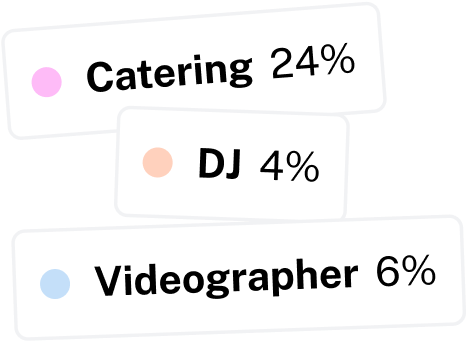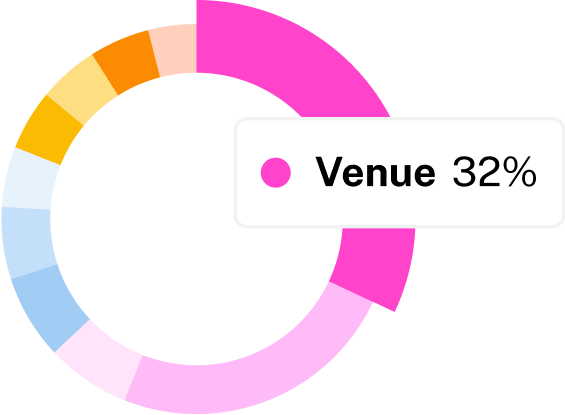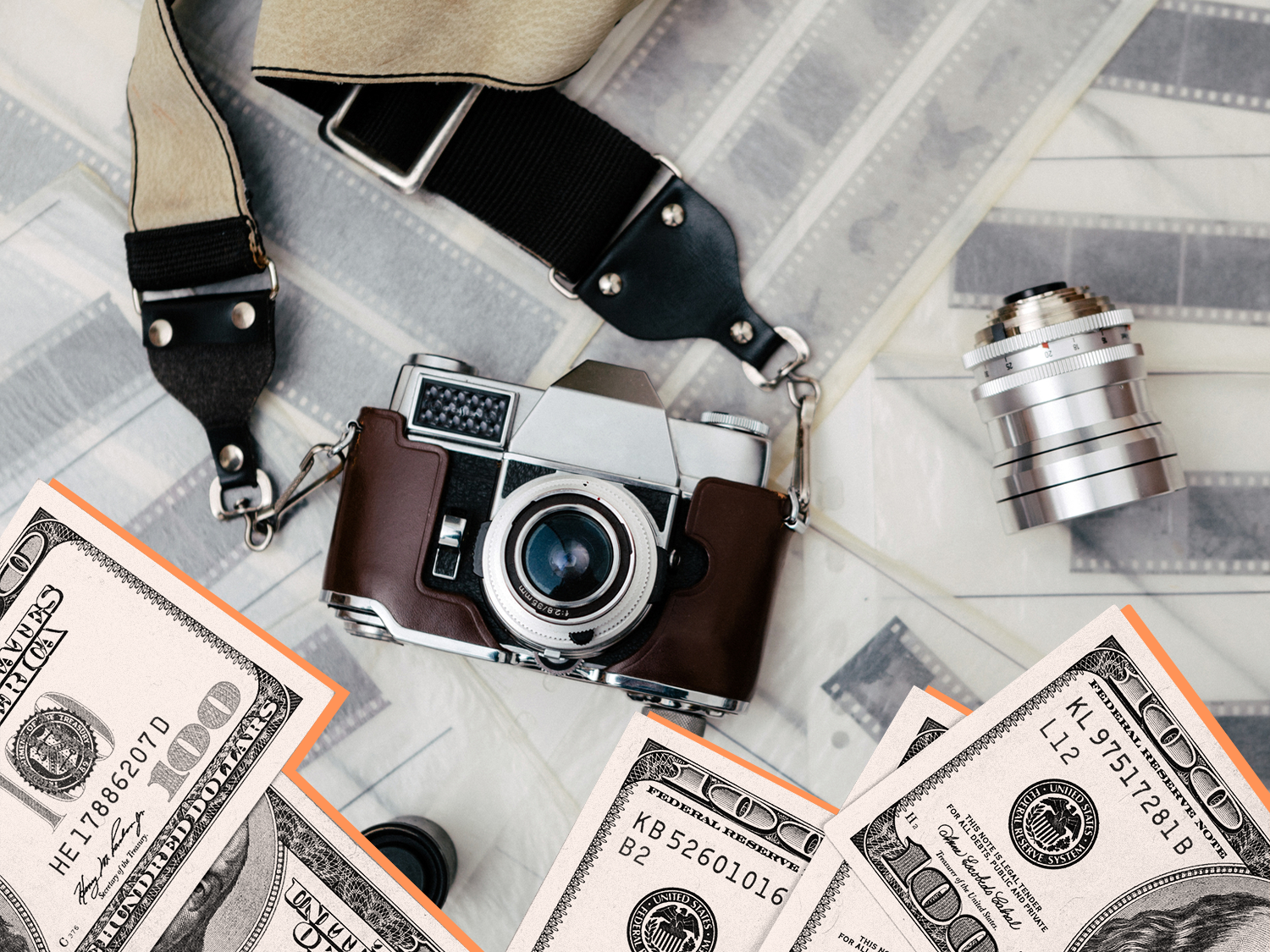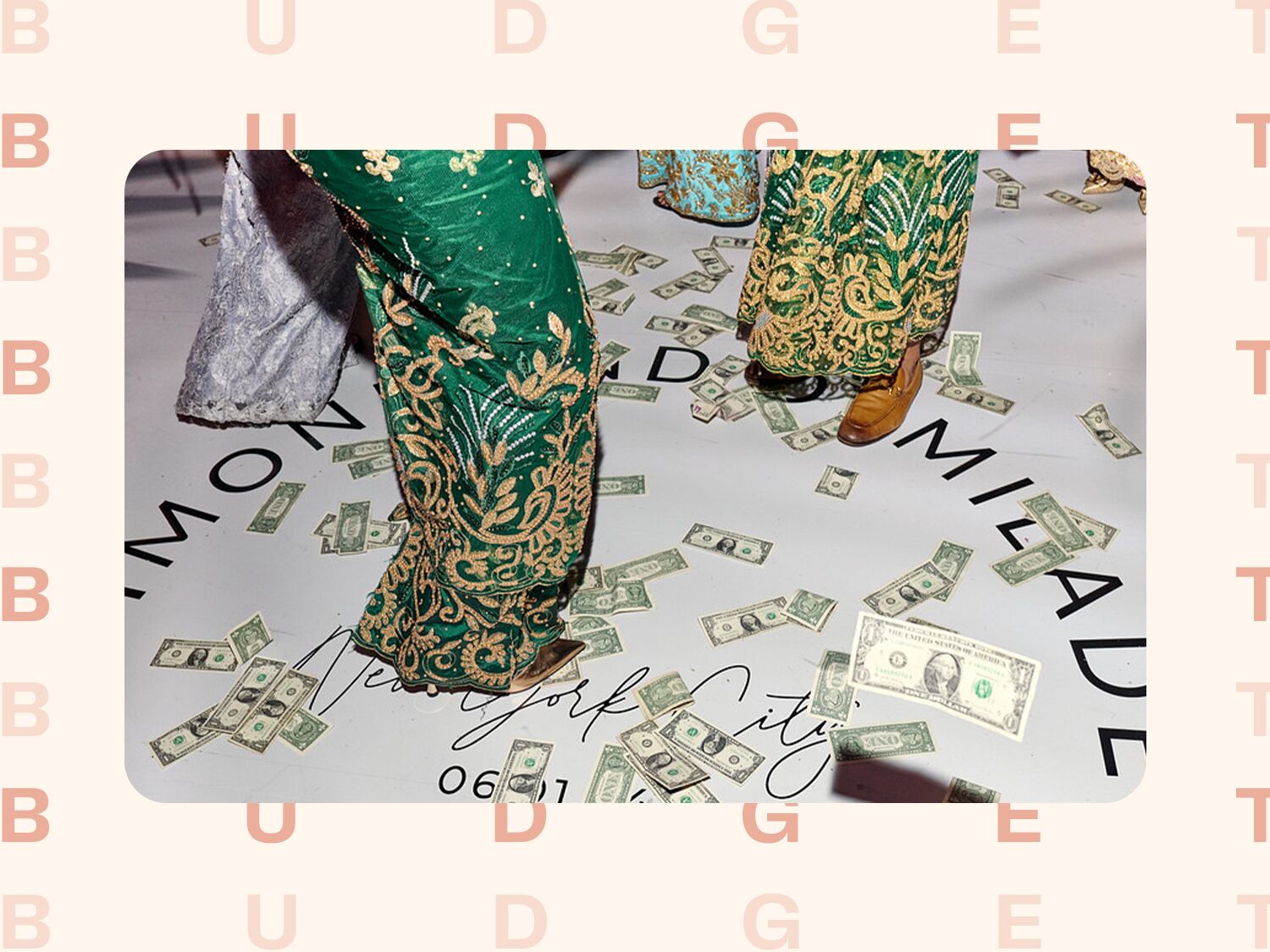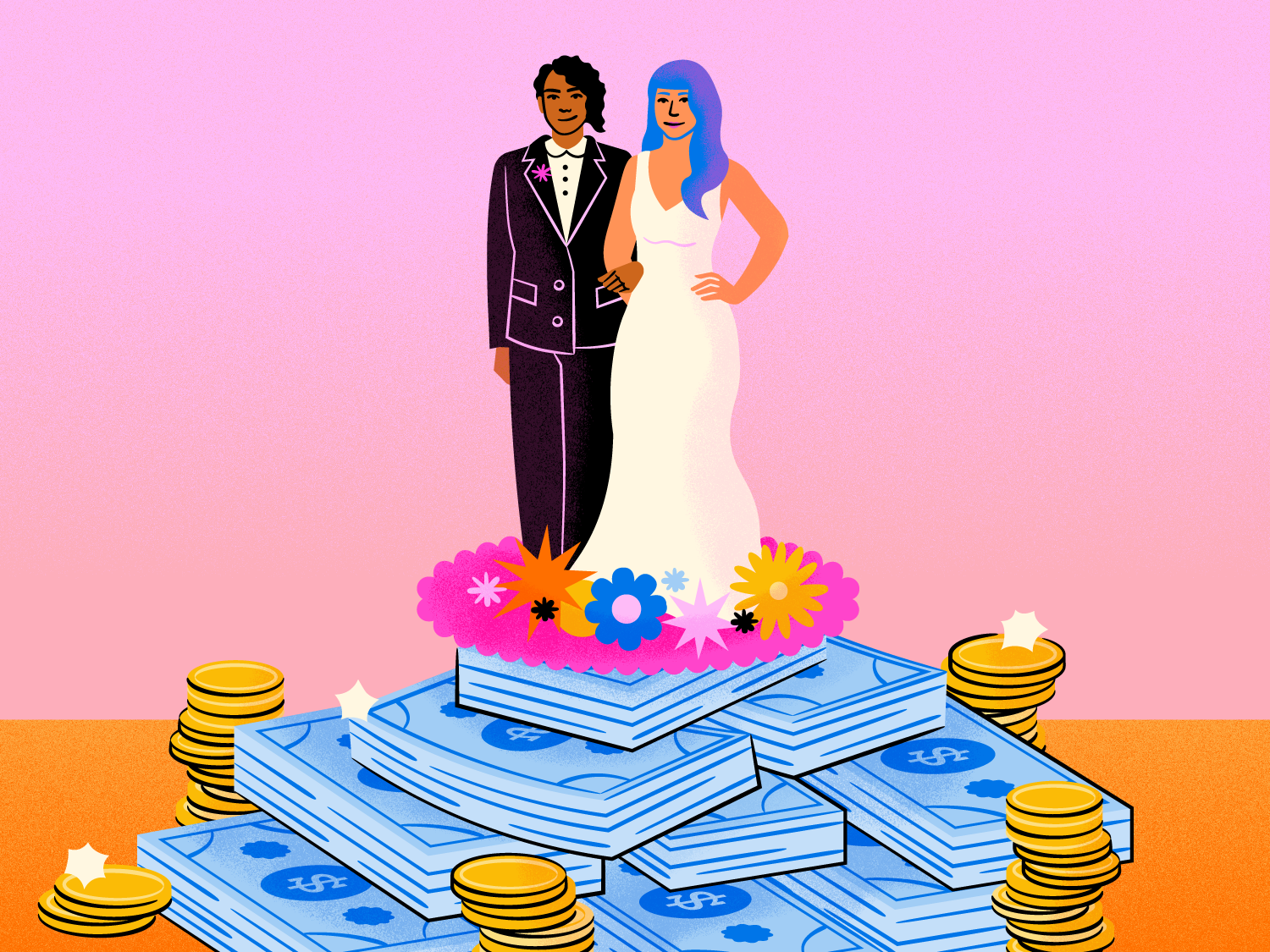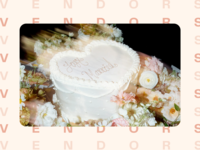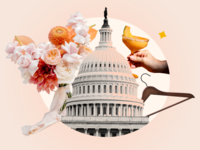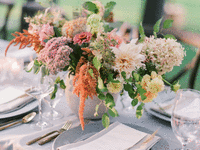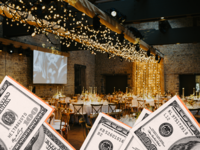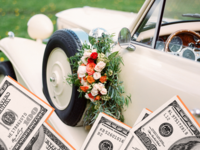8 Expert-Approved Affordable Wedding Cake Tips to Help You Save Money
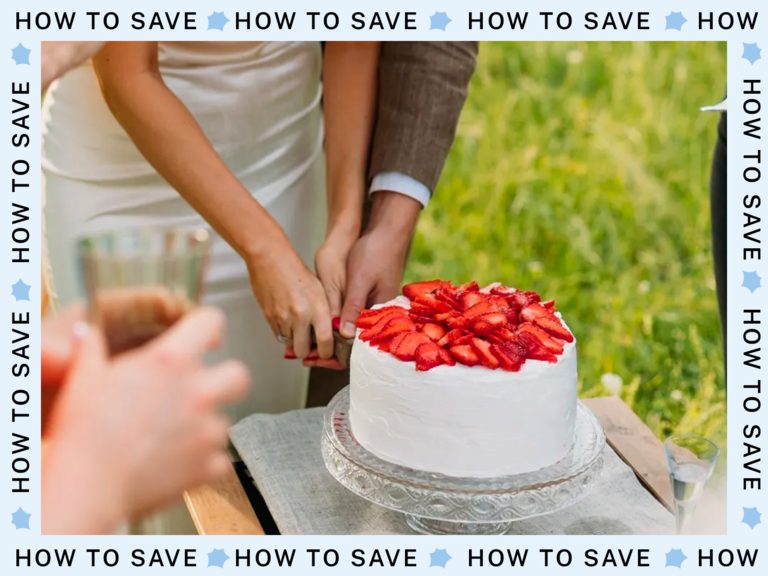
There's nothing quite as special as a showstopping wedding cake—but we get it, every wedding budget has its limits. The cake can be a stunning centerpiece at the reception, but it doesn't have to break the bank, thanks to these affordable wedding cake tips. In 2023, the average cost of a wedding cake was $540, according to The Knot Real Weddings Study. By exploring budget-friendly alternatives, making smart choices about design and ingredients, and understanding where to find savings, you can enjoy a wedding cake that's beautiful and budget-friendly. With advice from expert wedding planners, we'll guide you through practical tips on how to save money on a wedding cake while still putting your trust in your cake baker to achieve the perfect dessert for your special day.
You'll (usually) pay more for a larger cake.
It's no surprise that the more cake you need, the more money you should expect to spend. While the total number of guests you're serving does impact the cost, it's not just about the number of cake tiers, but also the size of each tier, explains Emily Coyne, certified wedding and event planner and founder of Emily Coyne Events. "It's the volume or number of servings that have a larger impact. You can have a small four-tier cake that provides more servings than a large three-tier cake, and the three-tier will likely be the more expensive one," says Coyne.
You should book your wedding cake baker between six to nine months before your wedding, when you have a ballpark guest count to estimate how much cake you'll need. Based on the size of the cake, you can decide how detailed you want the design to be, keeping your budget in mind. "Be aware that many cake designers will provide a starting cost for a 'base cake' in their initial proposal, but that the design elements are not yet factored in and will be determined at a later date," Coyne says. "Couples should ask before signing a contract to see examples of cakes that can be made at the proposal price in order to ensure all parties are aligned on design vs. cost."
Use fresh flowers versus sugar flowers.
If your heart's set on decorating your wedding cake with flowers, go with fresh blooms or choose flat designs such as painted flower motifs instead of ornate sugar flowers. "If the design on your cake is super time-consuming, this can increase the cost of the labor and working hours," says Nicole Day, owner and creative director of Ember & Stone Events. Day explains that edible flowers or other edible items will particularly increase the cost of the cake, since they're all hand-crafted pieces that not only require a lot of prep but are also very delicate. Sugar flowers are very labor intensive—it can take anywhere from 30 minutes to two hours to mold and dust a single sugar bloom. "If you are looking to be more cost effective but want your cake to have florals, using fresh flowers is typically the best option." To pare down the cost, choose a simple cake with three or four large flowers (like dahlias) or a spray of flowers and greenery on a one-tier wedding cake. Work with your wedding florist so they can source pesticide-free and food-safe buds that won't inflate your budget. (P.S.: You can get a wedding budget estimate for florists in your area using The Knot Budget Tool.)
Ask about delivery costs and additional fees upfront.
The price of your wedding cake isn't just about size, decoration or flavor. In most cases, you'll also have to pay for the cake to be delivered and set up at your reception venue on the wedding day—a task you definitely want to leave to the pros who know what they're doing. "It's important to discuss logistics of where the cake will be set up and at what time photos are being taken," says Coyne. "Beware of putting a buttercream cake outdoors in heat or humidity—you don't want it to come crashing down."
On top of delivery and setup charges from your cake baker, there may be fees from your venue or caterer for special cake-related requests, like refrigerating the cake on a hot day or cutting and plating the cake slices during the reception. Discuss all of these potential scenarios during your first cake consultation so you can factor them into your total wedding budget, and be sure to check in with any other vendors who might need to be involved in the logistical process (hint: your wedding planner). Finally, "ask what might cause the price to change at a later date," Coyne says. "This may include guest count increase, design changes and delivery time requests." Coyne says.
Keep the quality of ingredients in mind.
"Premium ingredients that are organic, locally sourced or considered specialty products tend to be more expensive," says Cameron Forbes, founder of Forbes Functions, a boutique event planning company based in NYC. On top of that, "customization, such as unique flavors, fillings, or dietary accommodations (e.g., gluten-free or vegan), can also add to the price." If you know you have dietary restrictions or special requirements for ingredients, it's important to discuss this during your first cake consultation so that your baker can build those requests into the price. And if you're working with a gourmet-level cake baker, keep in mind that they likely have their own standards for high-quality ingredients in order to maintain their preferred level of work—and those costs may be part of a higher baseline cake fee. "The top cake designers are typically using extremely high-quality cream, flour, fruit and other ingredients, and this will also impact cost," Coyne says.
Serve a personal cutting cake.
When you're looking for ways to save money on your wedding cake, one trick of the trade is to ask your baker to design a small cake (two tiers max) for you and your partner to cut into for photos, says Coyne. Undecorated sheet cakes, which stay hidden in the kitchen or catering area, are cut and served to the rest of your guests. "Since you will eliminate all of the design labor with a sheet cake, the cost is significantly less," Coyne explains. It's all the same type of cake—but since only a small portion of the cake is actually decorated, this is one of the most common inexpensive wedding cake alternatives to help you save money.
Consider other desserts for guests.
If you aren't a big fan of cake for non-wedding occasions, spending money on a wedding cake might not be a top priority of yours. (And you shouldn't feel obligated to serve wedding cake just for the sake of tradition.) "I recommend sticking to what feels best for you and something you both really enjoy having," says Day. "You never have to do something because it is 'required.' Make the day your own." Instead of ordering a cake you don't even want, put that money toward finding a vendor who specializes in different desserts instead, like cookies, pies or ice cream. You can even skip the obvious dessert choices altogether in favor of something unexpected to surprise your guests. "There are so many amazing alternatives to a traditional wedding cake, from dessert bars and trucks to donut walls," explains Forbes. "An arrangement of cupcakes in a tower or a dessert display with various sweet treats is visually appealing and cost-effective." She also recommends custom cookies or macarons as alternative, affordable wedding cake ideas and suggests replacing the traditional wedding cake with a dramatic croquembouche alongside a faux "patisserie" filled with French delicacies.
Don't go overboard with the cake display.
Some couples go all out when buying or renting elaborate cake stands, which are pretty, but not really necessary, especially if you're budget-conscious. Most bakers will provide a decorated baseboard for the cake so you can place it right on the table, or they may offer rentable cake stands to choose from. Once you have your cake display basics, you can carefully think about adding to it—decorate the empty space with a fun linen from home, or add lush greenery, old family wedding photos, candles and flowers (such as repurposed bridesmaid bouquets or aisle markers) to bring some life to the table.
Choose buttercream instead of fondant.
In the world of cake frosting, there are two big hitters: buttercream and fondant. There are pros and cons to each—including cost. "A simple buttercream finish will be significantly less expensive than fondant work," says Coyne. Buttercream is made with basic ingredients (milk, butter, sugar), while fondant requires extra steps and materials, and can be difficult to work with, making it more expensive. Regardless, do your due diligence of asking your baker upfront and don't assume your cake will be less expensive with buttercream: You might want a super-smooth finish on a buttercream cake, when in reality, this pristine style requires precision and time.
Please note: The Knot and the materials and information it contains are not intended to, and do not constitute, financial or tax advice and should not be used as such. You should always consult with your financial and tax advisors about your specific circumstances. This information contained herein is not necessarily exhaustive, complete, accurate or up to date and we undertake no responsibility to update. In addition, we do not take responsibility for information contained in any external links, over which we have no control.


